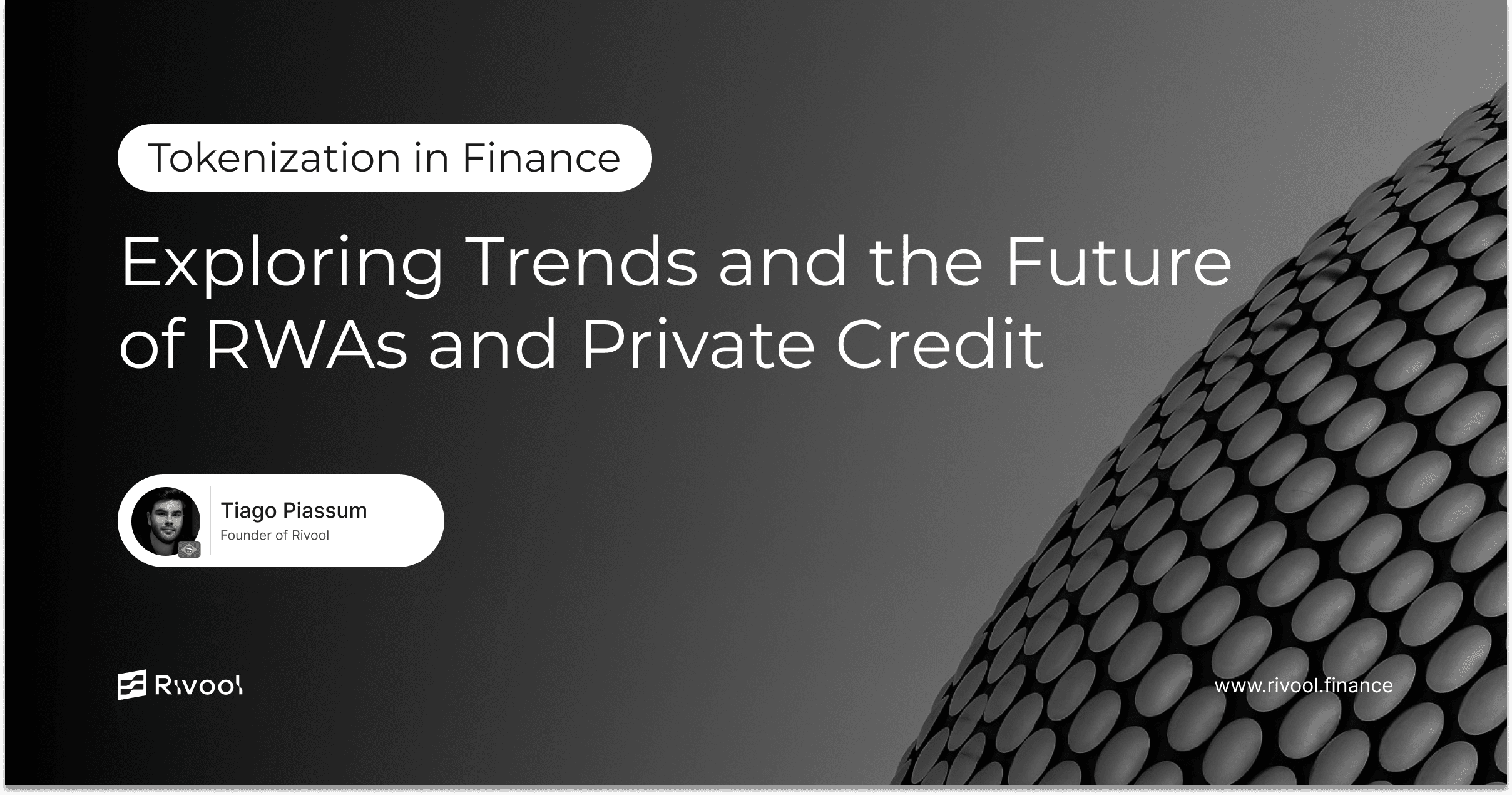Posted on August 2, 2024
Share:

Tokenization is the conversion of an asset's property rights into a digital token registered on a blockchain. This advancement in blockchain technolo
tokenization-in-finance-exploring-current-trends-and-the-future-of-real-world-assets-and-private-credit
Tokenization in Finance: Exploring Current Trends and the Future of Real-World Assets and Private Credit
Tokenization is the conversion of an asset's property rights into a digital token registered on a blockchain. This advancement in blockchain technology has led to the emergence of Real-World Asset (RWA) tokenization as a significant trend with the potential to shape traditional financial markets.
RWAs, including real estate, commodities, and private credit, can be digitized and traded on blockchain platforms. Tokenization facilitates investment opportunities, improves liquidity, and reduces transaction costs, offering a new horizon in the financial world.
The tokenization process begins with identifying a suitable asset. This asset can be tangible, such as real estate and commodities, or intangible, such as intellectual property and debt instruments. Valuing the asset’s market worth is crucial to determining the tokenization structure.

Utilizing smart contracts on a blockchain, digital tokens representing shares in the asset are created. Each token represents a fraction of the asset’s value, enabling fractional ownership. These smart contracts ensure the automatic execution of contractual terms, such as dividend distributions or interest payments.
Compliance with relevant regulations is a crucial step in the tokenization process. Different jurisdictions have varying requirements for digital assets, and ensuring that the process complies with these regulations is vital for the legality and acceptance of the tokenized asset. The tokens are then issued to investors, who can purchase them directly or through blockchain trading platforms. This issuance process is transparent and secure, thanks to blockchain technology, which immutably records all transactions.
One of the most significant advantages of tokenization is enhanced liquidity. Tokens can be traded on secondary markets, allowing investors to buy and sell their shares more quickly and efficiently than in traditional markets. Blockchain offers a transparent and auditable record of all transactions, increasing trust and security.

The tokenization of real estate allows high-value real estate assets to be divided into smaller fractions, accessible to a broader audience. This democratizes real estate investment and increases the liquidity of traditionally illiquid assets. For example, RealT, a real estate tokenization platform, allows investors to purchase fractions of properties in the U.S.
This concept can be extended to the rural domain, offering similar opportunities in the agricultural sector. Tokenizing rural properties can transform investments in farmland, livestock, and other high-value operations. By dividing these assets into smaller fractions, tokenization makes investing in rural lands accessible to a broader group of investors, promoting rural development and facilitating the financing of innovative and sustainable agricultural projects.
The tokenization of commodities, such as gold and oil, allows for more efficient and transparent trading of these assets. Digix, for example, backs its DGX tokens with gold bars stored in vaults, providing a secure and auditable way to invest in gold. This further expands portfolio diversification opportunities through the tokenization of tangible assets. Private credit tokenization involves creating tokens representing loans or other debt instruments. This allows for greater liquidity and accessibility for smaller investors.

The tokenization market is projected to grow exponentially in the coming years. According to a Boston Consulting Group (BCG) and ADDX report, asset tokenization could reach $16 trillion by 2030, representing 10% of global GDP. This growth is driven by the increasing demand for access to private markets and tokenization’s reduced operational costs.
Institutional adoption is increasing, with large financial institutions exploring tokenization to improve the efficiency and accessibility of their investments. Tokenization also expands into new asset classes, such as art and music, offering new investment opportunities and democratizing access to these markets.

Key trends include institutional adoption, with large financial institutions exploring tokenization to improve the efficiency of their investment portfolios. Integration with decentralized finance (DeFi) is providing greater liquidity and accessibility. Improvements in regulatory compliance are facilitating the adoption of tokenization in different jurisdictions. Mastercard, for example, is exploring tokenization solutions to improve the security and efficiency of global financial transactions.
The tokenization of RWAs and private credit is shaping the future of financial markets. With the ability to facilitate access to investments, improve liquidity, and reduce transaction costs, tokenization represents a significant advancement in financial technology. As regulations evolve and institutional adoption grows, the potential for tokenization to transform financial markets becomes increasingly evident. Deloitte highlights, “The goal and benefits of tokenization promise a likely disruption in financial and investment markets.”
Authored by Tiago Piassum Theodoro, founder of Rivool Finance.
Tags
Private credit







